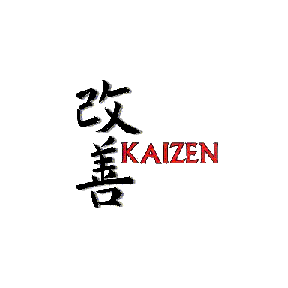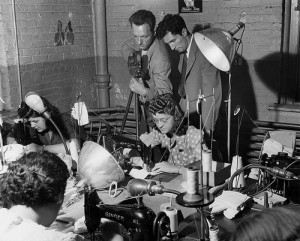 Your business's Net Promoter Score is a critical measure of success.
Your business's Net Promoter Score is a critical measure of success.
Lean managers should place extra value on this metric, which gauges an organization's performance in identifying customer value points and eliminating waste.
Product quality is paramount, but customer service experiences also significantly affect your Net Promoter Score.
If your business's score is suffering due to negative and neutral service experiences, these five simple strategies may make a big difference.
Customers often report poor experiences because they are willing to give you a second chance.
Establish a policy of surprising and delighting your unhappy customers in order to convert them into Promoters.
Customers feel good about themselves when they believe they have helped a company improve. Solve their problems, surprise them with a free item or extra discount, and thank them sincerely for their help. (more…)
 When a company or department is not succeeding, leadership may elect to bring in a Lean manager. This often leaves a panel of conventional managers striving to hire a Lean manager.
When a company or department is not succeeding, leadership may elect to bring in a Lean manager. This often leaves a panel of conventional managers striving to hire a Lean manager.
But how can one evaluate a candidate's knowledge of a management paradigm that one does not practice?
In an ideal world, everyone hiring for a position would understand the duties and priorities entailed.
In the real world, many new positions are created to fill a gap in an organization; therefore, the nature of hiring is that it will involve interviewing and evaluation of candidates by someone who is not experienced in the duties of the new position.
Conventional managers can hire Lean managers, provided they come to the process prepared. (more…)
 A few weeks ago, I was headed on vacation with my family and, as we stood in the airport security line, I noticed something interesting. TSA does not use lean management practices.
A few weeks ago, I was headed on vacation with my family and, as we stood in the airport security line, I noticed something interesting. TSA does not use lean management practices.
Curious, I watched to see how long it took for one person to go through the line. I also counted how many times the person scanning the bags was interrupted...by his own peers.
In the five minutes it took for one person to go through security, the TSA reps were all talking to one another, and the guy scanning our bags was interrupted by five other TSA employees.
Where are the standards for one of our country's most important positions?
It's understandable standards need to vary from airport-to-airport, in order to not provide an easy way for terrorists to strike, but what I witnessed was inefficiency at its best. (more…)
 It is easy to see why a high IQ is an advantage to Lean managers.
It is easy to see why a high IQ is an advantage to Lean managers.
Lean requires plenty of number-crunching and analysis, as well as the ability to visualize what may be a global supply chain and identify problems immediately. But what about EQ, or emotional intelligence?
Many sources list EQ as critical to management performance, but some Lean managers disagree a high EQ as indicating a management style not compatible with a laser focus on continuous improvement.
On the other hand, many Lean success stories revolve around a leader who "sold" Lean to his organization thanks to his EQ.
Let us examine further the role of EQ in Lean management. (more…)
 Management by walking around is one of the first concepts introduced to students of management, and for good reason: A manager who resides exclusively behind a desk only speaks to nervous, scripted direct reports who have been called to his office.
Management by walking around is one of the first concepts introduced to students of management, and for good reason: A manager who resides exclusively behind a desk only speaks to nervous, scripted direct reports who have been called to his office.
A manager conducting informal check-ins learns more, builds trust, and discovers new business opportunities more quickly.
But is management by walking around compatible with Lean? How can a manager determine whether or not "walking around" is the best use of his time? What can be done to make this management style as efficient as possible?
Let us delve deeper into the intersections between Lean management and management by walking around, a component of strategic management.
Management by walking around only works if you are perceived as a colleague, not an interference. Do not begin an informal check-in program until you are sure you know what your employees are doing, when they're scheduled to do it, why it's important, and how to do it. (more…)
 For some people, "organizational culture" calls to mind images of companies such as Google, with elaborate perks intended to lure the best talent and keep it there.
For some people, "organizational culture" calls to mind images of companies such as Google, with elaborate perks intended to lure the best talent and keep it there.
For others, it's the idea of an organization such as Zappos, which wants every employee to meet and keep lifelong friends at work.
For many Lean managers, the first company that comes to mind is Toyota, known for a kaizen culture so strong that death from overwork has become a problem.
The layperson often assumes Lean organizations are low on culture, because many popular definitions of organizational culture involve spending which would be considered wasteful by Lean managers.
Not so! Culture building is, in truth, critical to the success of Lean organizations, as demonstrated by Toyota.
Every organization wants a "culture of excellence," to the point that this oft-repeated jargon has become almost laughable. (more…)
 For workers accustomed to traditional management, it may seem difficult or even impossible to stand out in a Lean environment. The traits that impressed prior supervisors make nary a ripple.
For workers accustomed to traditional management, it may seem difficult or even impossible to stand out in a Lean environment. The traits that impressed prior supervisors make nary a ripple.
Particularly for those transitioning into manufacturing from a different industry, this phenomenon causes frustration.
Lean managers may seem indifferent, but that perception could not be farther from the truth. In reality, they are big-picture thinkers continually evaluating and reexamining many aspects of their direct reports' performance.
To impress a Lean manager, you must excel within the framework of Lean thinking.
Employees new to Lean may find "muda," "kaizen," and other Lean management terms incomprehensible. (more…)
 A few years ago, a jobs center in Florida received national criticism after $14,000 was spent on 6,000 capes, which the center intended to hand out to jobless Floridians.
A few years ago, a jobs center in Florida received national criticism after $14,000 was spent on 6,000 capes, which the center intended to hand out to jobless Floridians.
Following media furor, the jobs center canceled its "Cape-A-Bility" PR initiative, which also included a "Which Superhero Are You?" quiz and more than $2,000 spent on cutouts of a "Dr. Evil Unemployment" character.
This incident illustrates arguments in favor of extending Lean management practices into industries outside manufacturing. Had Lean principles been implemented by the jobs center, this ill-fated campaign would never have begun.
Here are a few reasons why.
Lean management teaches that your product or service's value can only be defined by the end user.
If you are an automotive aftermarket manufacturer, vehicle owners define the value of the equipment you manufacture.
If you are a hospital administrator, patients define the value of your services.
If you happen to be a Florida jobs center, unemployed individuals define the value of your products and services. (more…)
 A time and motion study is part of the history of efficiency in the workplace, which also includes the development of Lean management.
A time and motion study is part of the history of efficiency in the workplace, which also includes the development of Lean management.
Every freshman business student will hear the story of a bricklayer observed by Frank Gilbreth, whose time and motion study of this man's work led to a nearly 75 percent reduction in the number of steps necessary to lay a single brick.
But does a time and motion study have a role in the modern Lean workplace?
Lean management and scientific management often focus on the same factors, namely wasted time and wasted motion. A time and motion study is one way to locate waste through measurement, rather than by "instinct" or guesswork.
This is helpful to managers who are brought into an industry in which the manager has not previously worked. A Lean manager from the auto aftermarket world may not know how to build houses, but he or she likely knows how to use objective metrics to measure how rapidly employees build a house and how many motions the task entails. (more…)
